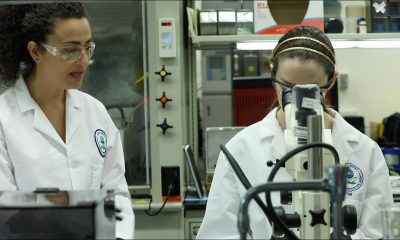EPA Proposes to Restrict Applied Public Health Scientific Research in Midst of Coronavirus Pandemic
It wants political control over what research is used in any of the agency’s work.

The Environmental Protection Agency moved today to restrict the types of research that can be used in public health protection decisions and scientific assessments. In the midst of the coronavirus pandemic, the agency is recklessly giving the public just 30 days to comment on this sweeping proposal. UCS developed a guide to assist you in making a public comment, and if you are able to do so, you should.
The “supplemental” proposal, which builds on a previous effort, would remove from consideration or downweight thousands of scientific papers by public health scientists when the raw data behind these studies cannot be made public. So while these experts are the front lines of the fight against COVID-19, treating patients, researching vaccines, and educating the public about staying safe, the EPA is trying to push this proposal through with as little criticism as they can get away with.
The American Public Health Association, the American Lung Association, and scores of other scientific organizations all strongly opposed the original proposal and urged EPA to withdraw it. Now, they will have to pull staff away from protecting our country to write extensive comments to stop the EPA from sabotaging itself. It’s a terrible diversion, but it’s one they must take.
In a letter sent this morning, we asked EPA to extend the comment deadline and hold virtual public hearings. The “supplemental” proposal is significantly broader than the original. According to EPA, it would apply not only to studies behind EPA decisions about vehicle emissions, clean air standards, and clean water protections, but also EPA’s own “state-of-science reports, technology assessments, weight-of-evidence analyses, meta-analyses, risk assessments, toxicological profiles of substances, integrated assessment models, hazard determinations, exposure assessments, or health, ecological, or safety assessments.”
The EPA has not articulated a problem it wants to solve. It faces no deadlines. But agency leaders see an opening. They feel compelled to carry out an idea hatched by tobacco industry lobbyists decades ago. The proposal was developed wholly by political staff. The EPA’s Science Advisory Board initially called it a “license to politicize” science and said that it would compromise the agency’s decision-making process.
Because this is written as a supplemental to the original rule, EPA will only take comments that address the changes made in the supplemental. Therefore, you should articulate how your comments respond to the document that was released today.
At a time when seeking out and utilizing cutting-edge research is a life or death situation, the EPA is moving in the opposite direction. What EPA is saying here is that it wants political control over what research is used in any of the agency’s work. Don’t let them get away with this without a fight. Commit to writing a public comment and we will provide you with the resources you need to be most effective.
*
Note to readers: please click the share buttons above or below. Forward this article to your email lists. Crosspost on your blog site, internet forums. etc.
Michael Halpern is an expert on political interference in science and solutions to reduce suppression, manipulation, and distortion of government science.

